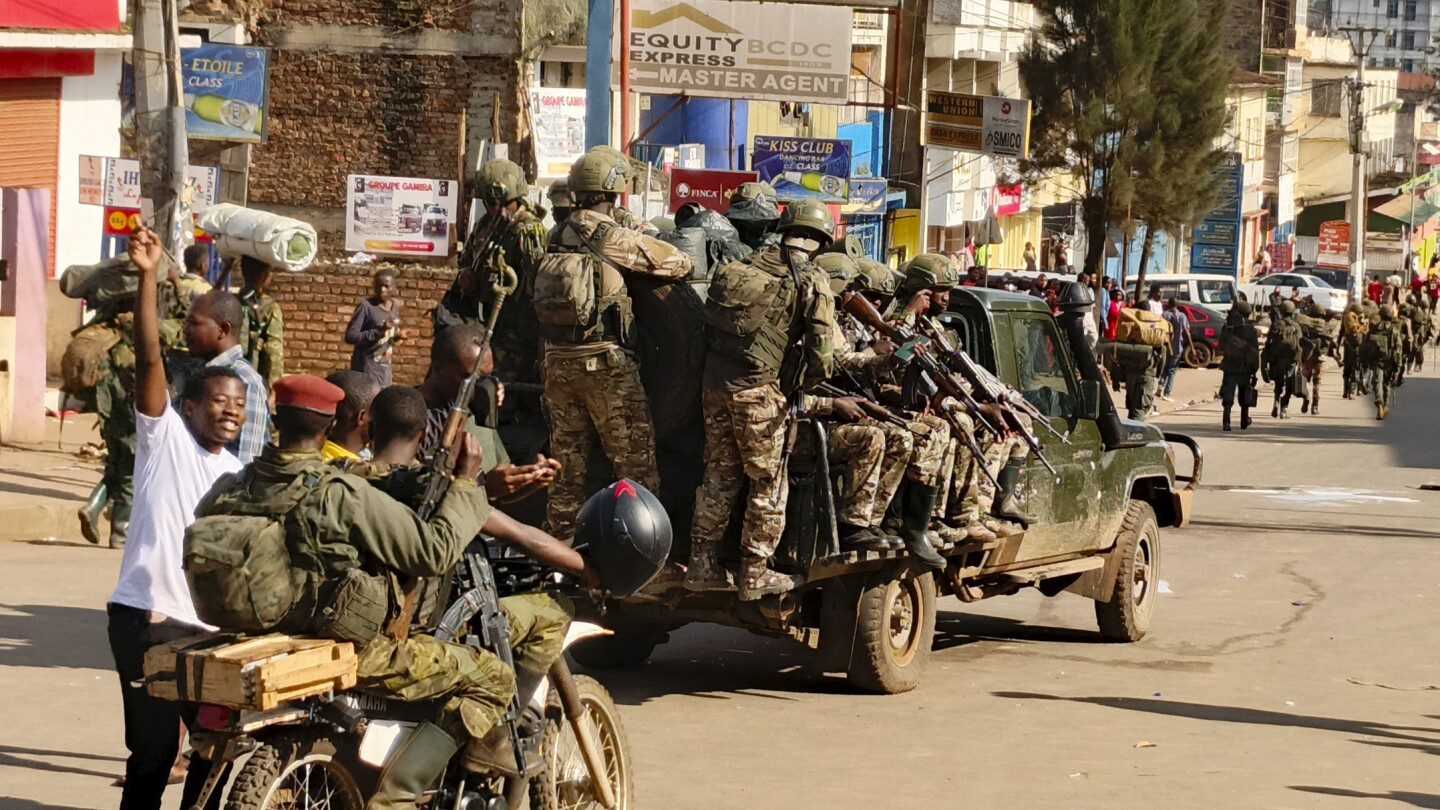
BUKAVU, Congo (AP) — On Sunday morning, rebels backed by Rwanda made significant advances into the center of Bukavu, the second-largest city in eastern Congo, after facing minimal resistance from government forces. This marks an unusual extension of the insurgents’ territorial control in ongoing conflicts that have spanned several years.
Journalists from the Associated Press reported that numerous locals were seen cheering for the M23 rebels in central Bukavu as they maneuvered through the city following a multi-day march from Goma, approximately 63 miles (101 kilometers) away, which the group seized control of late last month. However, many neighborhoods in the city appeared deserted, with most residents remaining indoors.
The M23 rebels stand out among more than 100 armed factions vying for dominance in mineral-rich eastern Congo, purportedly supported by roughly 4,000 troops from Rwanda, according to United Nations reports. The conflict has resulted in the displacement of over 6 million individuals, making it the largest humanitarian crisis worldwide, with at least 350,000 people left without homes due to the rebels’ incursion into Goma.
It remains unclear whether M23 has established full control over Bukavu, a city of around 1.3 million residents. The rebels were observed stationed at significant locations, including the South Kivu administrative office, but there were no indications of continued fighting or Congolese military presence throughout much of Bukavu on Sunday.
Blaise Byamungu, a 37-year-old local, expressed his concerns, noting that the rebels entered a city “abandoned by all authorities without any loyalist forces present.”
“Is the government waiting for them to overtake other towns before taking any action? It’s cowardice,” he remarked. In contrast to 2012, when M23 seized Goma amid ethnic tensions, experts suggest that this time they are pursuing political power.
As the M23 advance into Bukavu unfolded, numerous Congolese soldiers fled alongside thousands of civilians, amidst widespread chaos and looting.
On Saturday evening, President Felix Tshisekedi convened a security meeting in Kinshasa, the distant capital, where officials reported that Bukavu had been “briefly” invaded by the M23, but that the Congolese army and allied local militia retained control, according to a statement from the presidency on X.
Tshisekedi acknowledged the potential for the conflict to escalate regionally. Congolese forces in Bukavu are receiving support from Burundian troops, while South African forces bolster Goma.
Burundi’s President, Evariste Ndayishimiye, hinted that his country would abstain from retaliation in the conflict, stating in a post on X that “those who sought to exploit Rwanda’s armed attack against Burundi will not succeed.”
The situation has been high on the agenda at the African Union summit in Ethiopia, where U.N. Secretary-General António Guterres highlighted the risk of the conflict escalating into a regional crisis. “The sovereignty and territorial integrity of Congo must be respected,” he stated.
Despite this, both African leaders and the global community have shown reluctance to take decisive measures against M23 or Rwanda, as most continue advocating for a ceasefire and dialogue between the Congolese government and the rebel factions.
The Congo River Alliance, a coalition of rebel factions, including M23, expressed its commitment to “defending the people of Bukavu” in a recent statement without acknowledging their presence in the city. “We urge the population to maintain control over their city and not succumb to panic,” said Lawrence Kanyuka, spokesperson for the alliance.
The ongoing conflict in Congo is rooted in a long-standing ethnic dispute. The M23 claims to defend ethnic Tutsis in Congo, while Rwanda alleges that Tutsis are facing persecution from Hutus and former militia groups responsible for the 1994 genocide that resulted in the deaths of 800,000 Tutsis and others in Rwanda. Many Hutus fled to Congo post-genocide, subsequently forming the Democratic Forces for the Liberation of Rwanda militia, which Rwanda claims is “fully integrated” into the Congolese military, a charge denied by Congo’s government.









